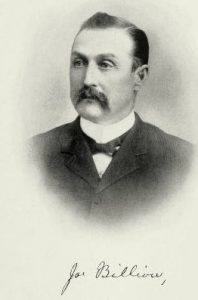By Suzanne Sparrow Watson
 Last week I was researching the history of Pulga, a small town in Northern California, for some copy I’m writing for their website. As it happens, this town is very close to Willows, where our dad’s family settled in 1829. Our dad was born and raised there and the land is still owned and ranched by members of our extended family. When I wrote our family history six years ago I discovered that we had something of a colorful past – our great-great grandmother, Julia Billiou, was murdered while sitting at her dining table. That’s not something you find on Ancestry every day.
Last week I was researching the history of Pulga, a small town in Northern California, for some copy I’m writing for their website. As it happens, this town is very close to Willows, where our dad’s family settled in 1829. Our dad was born and raised there and the land is still owned and ranched by members of our extended family. When I wrote our family history six years ago I discovered that we had something of a colorful past – our great-great grandmother, Julia Billiou, was murdered while sitting at her dining table. That’s not something you find on Ancestry every day.
When I was writing our history I was lucky enough to connect with a third cousin (I think twice removed but I can never keep that stuff straight) who had a treasure trove of information about Julia and her husband, Joseph Billiou, including copies of the newspaper accounts of her murder. The local papers in Oroville and Chico reported that the Billiou’s 16 year-old Chinese cook, Hong Di, burst out of the kitchen on the night of April 7, 1887 and in a drunken rage, shot the ranch foreman, William Weaver, in the shoulder. He then shot Julia as she rose from the table, striking her directly in the heart and killing her instantly. Our great-grandmother, Annie, was shot at three times, but by that point Hong’s aim was a bit off and he missed her each time. Hong ran from the ranch, hiding in the brushes near the local creek for three days until he was caught and brought to trial. The jury found him guilty, but instead of the normal death sentence for a murder, he was sentenced to life imprisonment.
It would be a vast understatement to say that the verdict did not go down well with the local townspeople. Before the judge and jury had even left the courtroom there was shouting from the gallery calling for Hong’s lynching. The mayor called out the posse to guard the jail that night but a raucous band of 200 vigilantes stormed the facility. They found the cell in the basement where Hong was detained and demanded a full confession. This confession is what was reported in the local papers – that he’d imbibed in too much whiskey and that he didn’t mean to kill Julia as she had been kind to him. Nevertheless, the vigilantes dragged him down the street to the train turnstile and hung him. According to the papers, there was great celebration that night over the “justice” that was carried out. None of the vigilantes were ever arrested for their actions.
Fast forward to last week when I was doing research on Pulga. I decided as long as I was studying the local area I’d Google Julia’s murder to see if there was anything I’d missed. It turned out to be a lesson in “be careful what you wish for” because there was new information and it did not reflect well her. A recently published book about lynching in California has a full page devoted to Julia’s murder and Hong’s hanging. The author wrote that both the San Francisco Chronicle and the Sacramento Bee published the FULL account of Hong’s confession while the local papers chose not to run the full story because it “impinged on the good character of one of the town’s most beloved citizens”. To say the least. It turns out that a couple of months prior to the murder, while Mr. Billiou was in San Francisco on business, Hong stumbled upon Julia and Mr. Weaver in a “compromising position” up in the hay loft when Joseph was out of town. Mr. Weaver threatened Hong with death if he told Mr. Billiou about the affair when he returned to the ranch. Hong’s full confession also stated that his real target was Weaver and that he had great affection for Julia because she taught him to read and write English. So in that spring of 1887 I think it’s safe to say that tensions were running a little high in the household. Julia was cheating on her husband, the ranch foreman was fooling around with the boss’s wife, and the cook was scared of being killed at any moment.
These new revelations have me taking a second look at Julia. Her track record for fidelity wasn’t so great to begin with. Shortly after she arrived in Willows from Ireland she was engaged to Joseph’s brother, Michael. When Joseph arrived in California to join Michael, Julia broke off the engagement and married Joseph. That had to make for an awkward Thanksgiving. Then at age 50 – which was like 100 in 1887 – she has a fling with the ranch foreman. Maybe Joseph was a real jerk and she could only find true love with Mr. Weaver. She took her secrets to the grave, not even leaving a photograph of herself behind, so she’ll forever remain an enigma.
All I know is that I will never again look at all those prim and proper women in my family tree in the same way.
